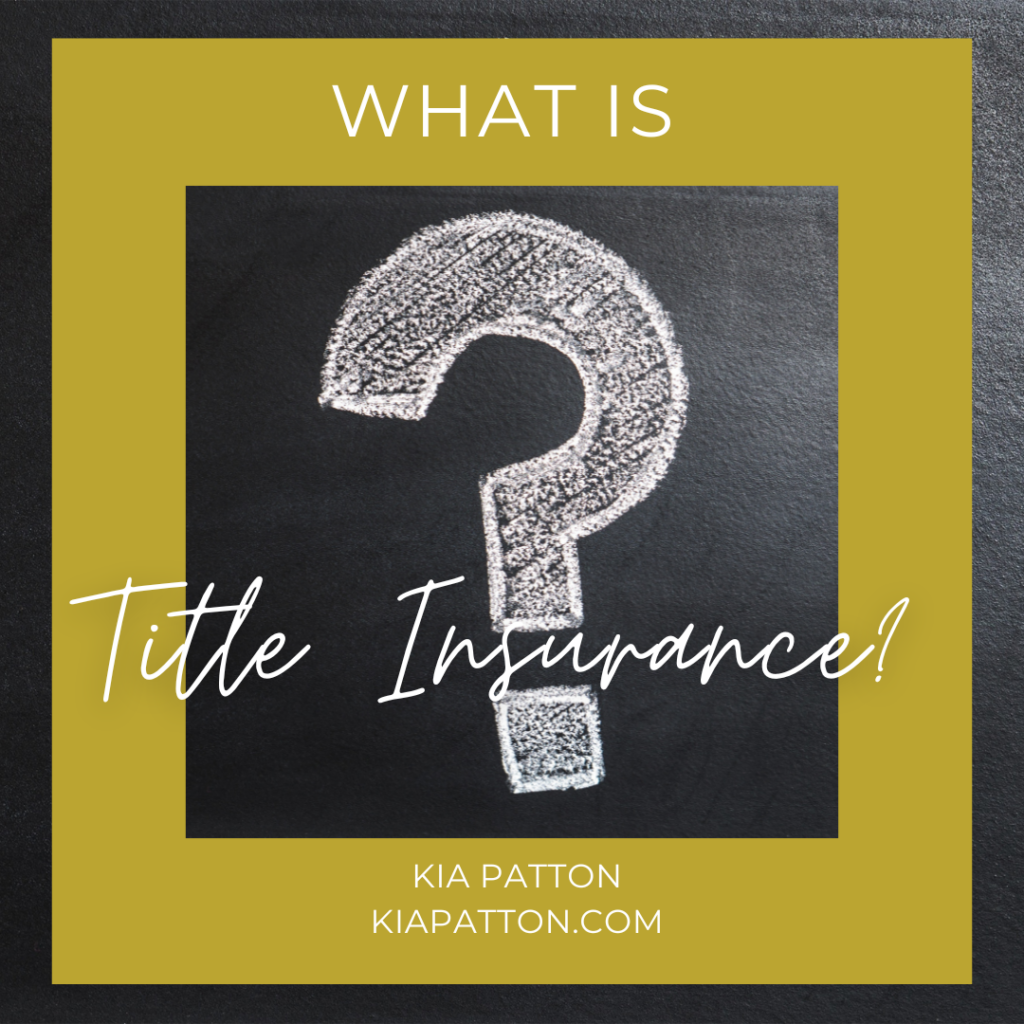
You’re in the market to buy a home and up pops “title insurance” in the buying process. Are you stumped and not sure exactly why you need to get it?
Here’s a Q&A that should clear up any uncertainty.
What is Title Insurance?
- Title insurance protects against what may have happened in the PAST with the home and property you are about to purchase.
- It’s different than life, property, or mortgage insurance, which protects against losses from future events.
- A title search is not 100% and the insurance is your protection. It will protect the insured from any problems that may arise once the policy is purchased, including any claims and legal fees.
- You pay a one-time fee at settlement, unlike other insurances in which you may pay monthly or yearly over the course of owning your home.
Why is this important?
The home you want to purchase may have had several owners before you, and the land may have had even more.
Something in the past may have occurred that could cause you problems now, such as a forged signature in transferring the title, or unpaid real estate taxes and other liens. Maybe a subcontractor never got paid when the home was expanded.
You never know what may be lurking in the financial ongoings of the previous owners.
Who does it protect … the lender or the owner?
It gets a little confusing since two policies will need to be purchased, one for the lender and one for you, the owner.
- One policy will only cover the lender’s loss, not yours. Because you’re getting a mortgage, a lender requires protection for an amount equal to the loan. Like mortgage insurance, title insurance protects the lender but you pay the premium, which is one payment made upfront.
- The other is an owner’s title policy. It will protect your equity in your home and property. In some areas, sellers pay for the owner’s policy to show good faith in the title. In other areas, borrowers must buy it. Usually, it is an add-on to the lender’s policy and the cost is relatively small.
When does the coverage begin and end?
Standard title insurance only covers events in the past.
Coverage ends on the day the policy is issued and extends backward in time. Only claims that occurred before the date of the policy will be covered.
If a subcontractor you hired while you’re in your home makes a lien, then you aren’t protected by the standard title insurance policy. It occurred after the policy date; an expanded policy could protect you (see question below).
How long do I need coverage?
Your owner’s policy protects you as long as you or any of your heirs have an obligation to the property. When the property is sold, the lender will require the new purchasers to get a policy. That way, the lender will be protected from any claims or liens against the property that may have occurred since the date of the previous policy (or when you owned the property).
But if you have a lien on your property and it’s found during the title search, then you need to settle the claim before you sell.
What is the expanded coverage of the ALTA Homeowner’s Policy of Title Insurance?
The standard owner’s policy will not protect you in certain instances. However, expanded coverage is offered in many states.
This coverage, referred to as the ALTA Homeowner’s Policy, offers some protection from events that occur after you have bought your house. Not just events in the past.
This expanded policy can protect you against some additional issues such as:
- liens made by subcontractors not paid by the builder if you’re in a newly constructed house;
- future identity theft or forgery ownership claims;
- a neighbor’s building encroaching on your property without your knowledge and adversely possessing and possibly taking your land; and
- costs incurred to correct a zoning violation of the previous owner.
How do I buy title insurance?
In the Triangle area, the title company selects the carrier. Premiums and requirements vary from state to state and sometimes within states.
Can I deduct title insurance premiums on my taxes?
No, not according to current tax codes, but always check with your tax advisor.
Talk to the Experts
This article is just an intro to what to know about title insurance. When it comes time to get title insurance, you should always discuss your policy with the title company and their licensed title insurance providers. I’ll introduce you when it comes time!